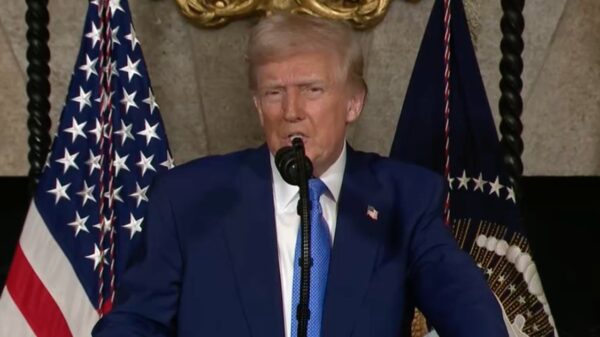U.S. Sen. Marco Rubio, R-Fla., and U.S. Rep. Neal Dunn, R-Fla., are championing a proposal to end de minimis treatment for goods from China and Russia” and to require Customs and Border Patrol (CBP) to “obtain more information about de minimis packages entering the country.”
U.S. Sen. Sherrod Brown, D-Ohio introduced the “Import Security and Fairness Act” in the U.S. Senate with Rubio co-sponsoring the bill. Over in the U.S. House, U.S. Rep. Earl Blumenauer, D-Oreg., introduced the bill with Dunn co-sponsoring it.
“Current U.S. trade law includes a de minimis exception, which is a duty and tax exemption for imports valued under $800. Countries such as China and Russia are taking advantage of this exception and shipping a high volume of low-value goods. Customs and Border Patrol (CBP) has little information about incoming packages and is thereby allowing goods made with forced labor into the country,” Rubio’s ofifce noted, insisting the bill will “end de minimis treatment for goods from China and Russia” and “require CBP to obtain more information about de minimis packages entering the country.”
The backers of the proposal weighed in on why they were supporting it.
“Our trade laws can only protect Ohio workers and Ohio businesses if they aren’t riddled with loopholes. This loophole is essentially a backdoor way for competitors like China to ship goods into the U.S. without paying the tariffs and other taxes and fees they owe. Ohio workers should not be forced to compete with foreign competitors that cheat. Our bill would stop Chinese companies from abusing our trade laws to undermine Ohio businesses and their workers,” said Brown.
“China exploits our capital markets and uses slave labor to undercut American businesses. It is bad for our country to let China flood our country with duty-free packages using the de minimis exception. The Import Security and Fairness Act will close this loophole and take another critical step to stop China from cheating on trade,” said Rubio.
U.S. Representatives Neal Dunn (R-FL) and Earl Blumenauer (D-OR) introduced companion legislation in the House.
“The de minimis loophole is a threat to American competitiveness, consumer safety, and basic human rights.“It is used by primarily Chinese companies to ship over two million packages a day into the United States. It puts American businesses at a competitive disadvantage while flooding American consumers with undoubtedly harmful products. There is virtually no way to tell whether packages that come in under the de minimis limit contain products made with forced labor, intellectual property theft, or are otherwise dangerous. It is time to close this loophole once and for all,” said Blumenauer.
“The current de minimis threshold provides incentive for the gaming of American laws. Foreign exporters can access our market for free when each importation is less than $800. Right now, the Chinese Communist Party is operating a shell game with their trade. The Import Security and Fairness Act is a momentous step in the right direction – by eliminating China from this non-reciprocal trade benefit and strengthening U.S. Customs screening, China will need to start complying with our trade laws,” said Dunn.
Brown’s bill was sent to the U.S. Senate Finance Committee. Blumenauer’s bill was sent to the U.S. House Ways and Means Committee.






















